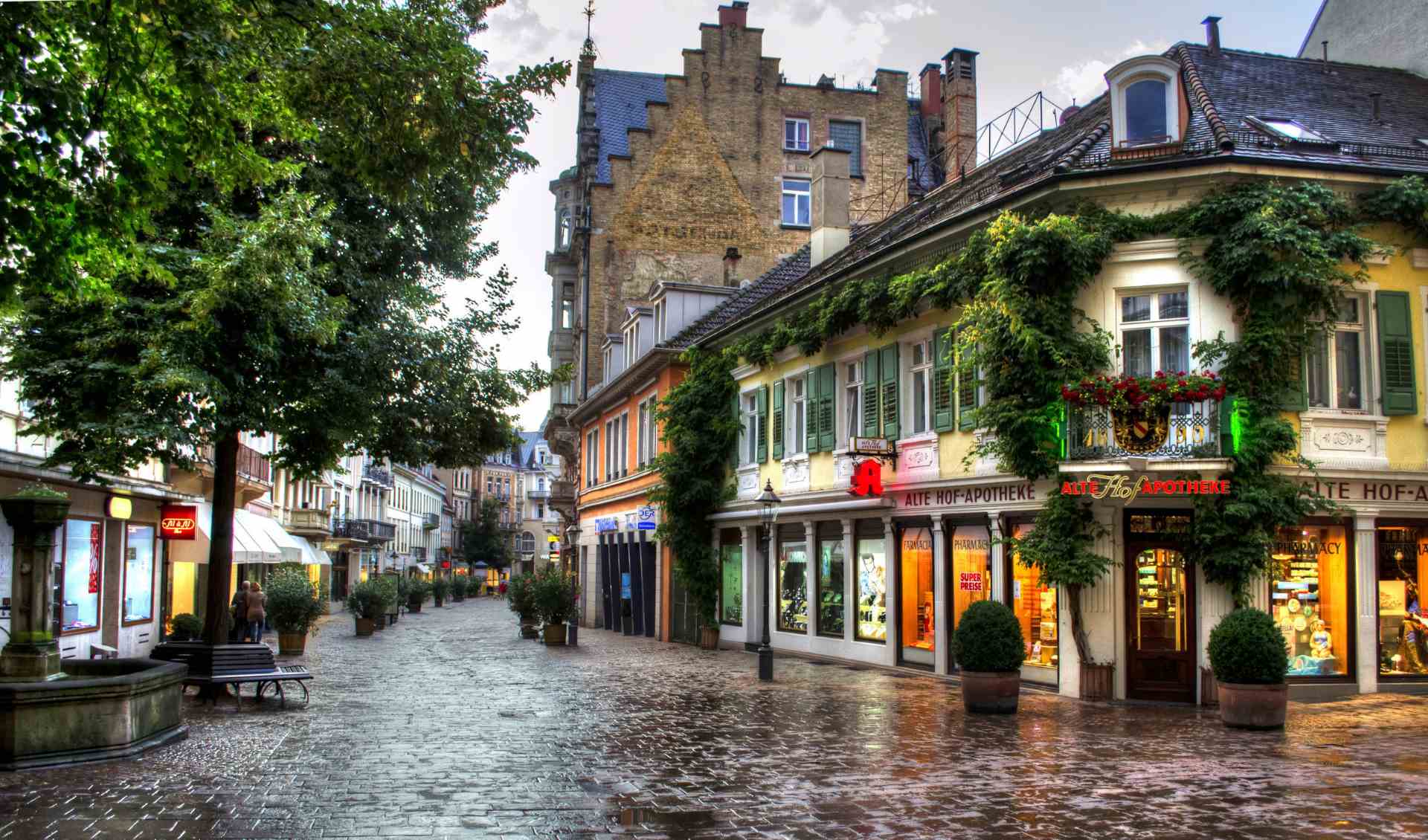In the southwest of Germany, in the western foothills of the Black Forest, nestled among the woods, lies the beautiful spa town of Baden-Baden. It is a place of relaxation and exceptional entertainment for adults and children alike, with world-class restaurants, hotels and therapeutic thermal springs. Since the 18th century, its beauty has attracted writers, musicians and artists worldwide.
Interesting facts about Baden-Baden can be found on many travel sites, but this article will make you want to visit the city next weekend or at least spend your next holiday here. So what will surprise us in Baden-Baden? Let's find out.
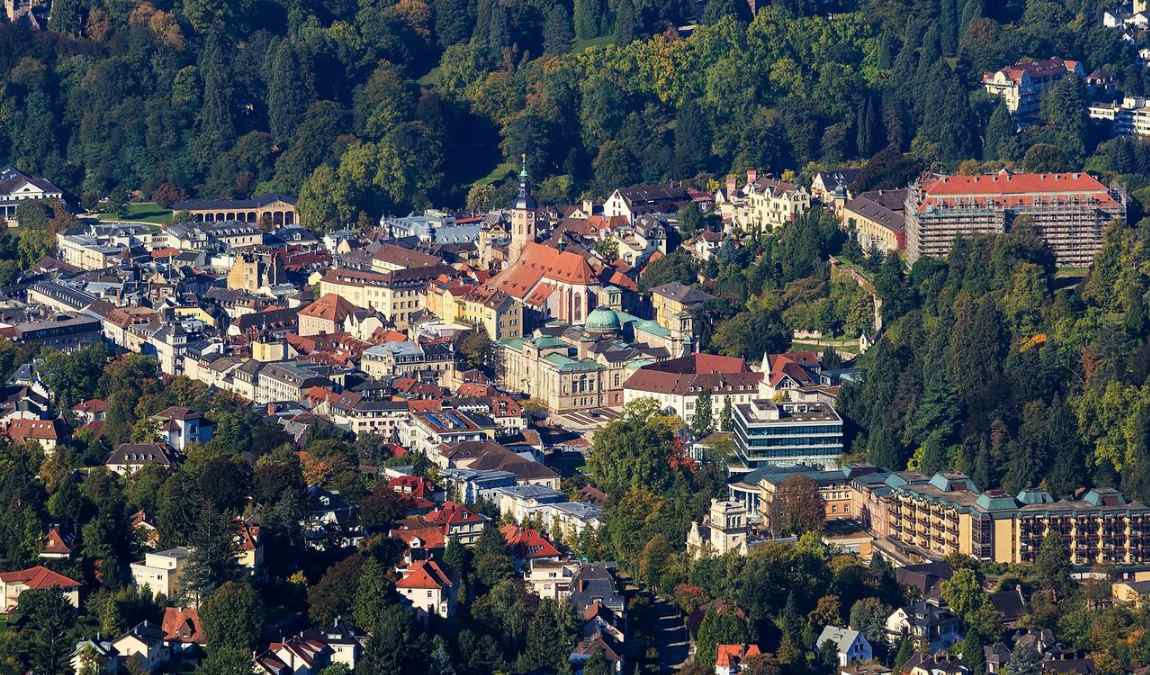
Fact 1: Baden-Baden is not Baden?
Baden-Baden and Baden are different towns in different countries. The name "Baden" appears quite often on the map of Europe. It is also the name of a city or a region. The City of Baden-Baden in Germany, which will be discussed in this article, until the end of XVIII century, was called Baden; even at that time, in neighbouring Austria and Switzerland, there were similarly named settlements.
When the German Baden built a high-level spa resort to avoid confusion, he began to call it Baden in Baden, which means "Baden in Baden region". The preposition in was eventually dropped for ease of pronunciation, and it was not until 1931 that the town's current official name, Baden-Baden, appeared.
Fact 2: A European health resort
The word "Baden" itself means "to bathe" in German. And it is not for nothing that the town has this name. In Roman times, around 2,000 years ago, thermal springs were discovered on the edge of the Black Forest. The ruins of the Roman baths have survived and can still be seen today.
By the 18th century, the city was proudly known as the summer capital of Europe. It was a favourite holiday destination for the aristocracy. Among its admirers were prominent politicians, aristocratic families and arts members.
Today Baden-Baden is a popular spa resort famous for its thermal springs with curative waters. One of these is the Caracalla Spa complex, which is practically in the centre of the town. The exciting fact about Baden-Baden: One of its most exquisite baths, the Friedrichsbad, often called the Temple of Wellbeing, still uses the 17-step bathing tradition established by the ancient Romans!
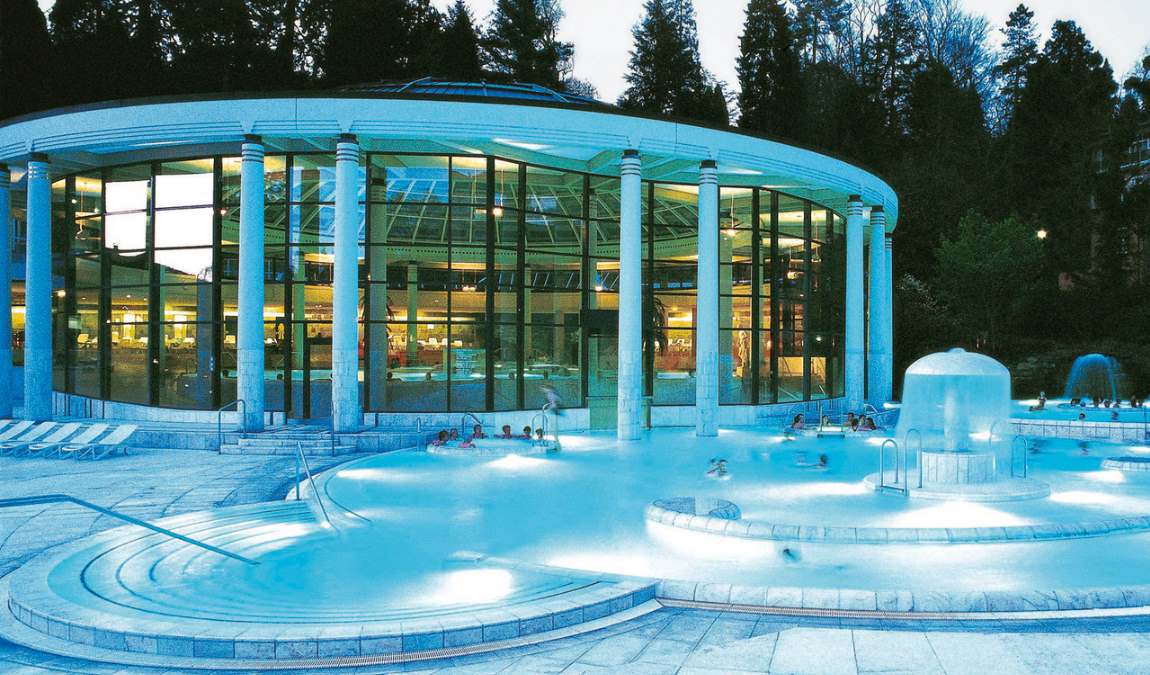
Fact 3: Not just thermae!
As Gogol once said, everyone comes to Baden-Baden to have fun. And there are plenty of reasons why. Warm and sunny Baden (the region in which the town is located) is the southernmost region in the country. Its unique soils and abundance of sunshine allow the wine industry to flourish.
Its Mediterranean climate is close to the Mediterranean Sea, and Pinot Noir, the most popular grape in the region, produces excellent grapes. Baden is also home to the most extensive wine cooperative in Europe.
This region attracts many wine lovers and pleasure-seeking tourists every summer and early autumn. The country's third-largest wine-growing area hosts many wine festivals every year. Since the middle of the twentieth century, the "Wine Queen of Baden" has been chosen during these celebrations.
Fact 4: Self-sustaining theatre
Baden-Baden's main concert hall, or Festspielhaus, is the largest opera house in Germany. The building in which it is housed is a veritable palace in the neoclassical style. It consists of a former railway station building and a vast glass and concrete cube added at the rear. The concert hall was inaugurated in 1998 and had a capacity of 2,500 seats.
It is one of the most famous concert venues in the world, hosting the Berlin and Vienna Philharmonic Orchestras, the Dresden Orchestra and joint productions with New York's Metropolitan Opera and the Opéra de Paris.
The exciting fact about Baden-Baden: The Festspielhaus is the only German theatre that requires no financial support from the state and is entirely self-sufficient.
Fact 5: Harp in the wind
Baden-Baden was an important administrative centre in the Middle Ages. The old castle (Hohenbaden) was the residence of the local margraves (the highest officials in the region) from the 11th to the 14th century. It was also one of the first medieval buildings in Europe to have a sewage system.
In the 14th century, a new castle was built, and the former centre lost its importance. In addition, at the end of the 16th century, a great fire almost destroyed the Old Castle. Today there are only ruins of the Old Castle, but it still attracts tourists.
In 1999 the most enormous sounding harp in Europe, the Aeolian Harp, was installed in the castle. You can enjoy the extraordinary sound of the harp every day between 10 am and 10 pm during the summer months.
Fact 6: Michelin in town
German restaurants are second only to French restaurants in the number of Michelin stars in Europe. Baden-Baden has also been awarded two stars by the world-famous culinary guide since 2015.
The restaurant's "two-star" status means that for its excellent cuisine, a tourist should detour from their main route.
You can and should make time for the Brenners Park, Hotel & Spa restaurant. As well as all the other gastronomic specialities, this 'star' restaurant serves a surprisingly tasty rack of lamb.
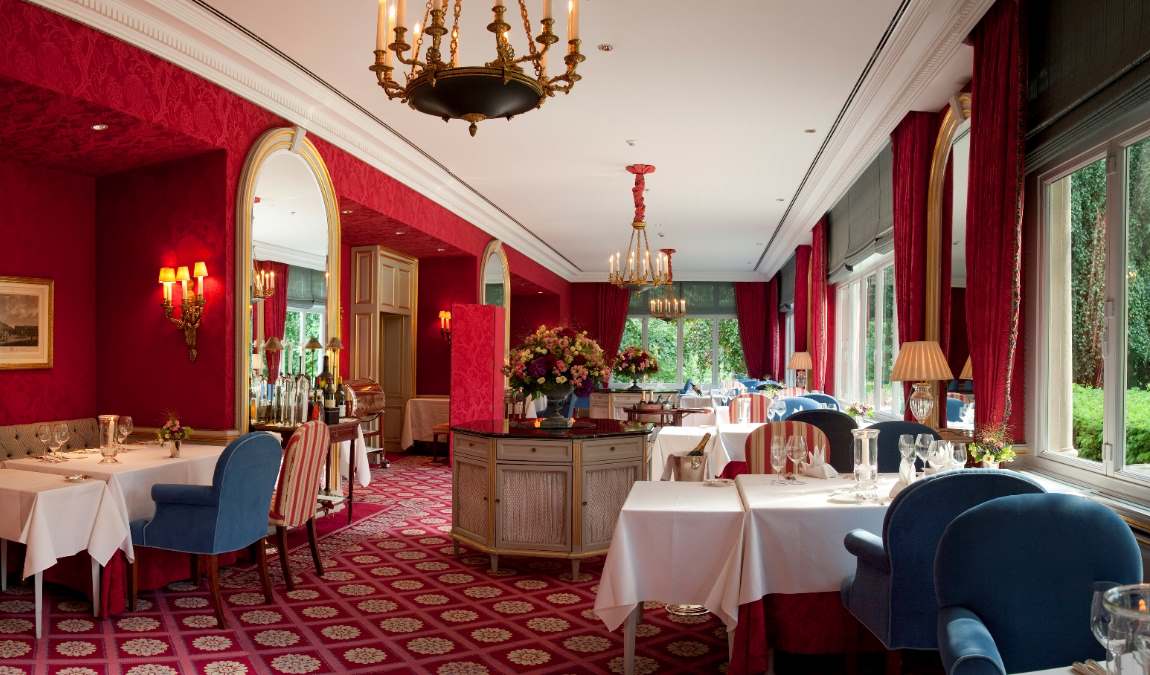
Fact 7: Hippodrome town
Not far from Baden-Baden lies the small town of Iffezheim. Here, Edouard Benaze, one of Baden's 19th-century patrons, started a racing tradition at the local racecourse in 1858 under the auspices of the Kurhaus Casino.
The racing season, known as the 'Great Week', was the highlight of the year not only in the town but also in the country. Lavish balls, flower parades, fireworks and many other festivities attracted distinguished men and politicians, including Kaiser Wilhelm I.
Today, little has changed, and Baden-Baden is gradually gaining the title of the world's equestrian capital. Twice a year (early summer and autumn), the rich and famous owners of the best racehorses in Europe and the world come to the Iffezheim racecourse. A day at the races is a unique pastime not only for adults but also for children.
Fact 8: Festival of car rarities
An interesting fact about Baden-Baden: there are more than 30,000 cars per 50,000 inhabitants! The number of people legally allowed to drive is even lower. This cosy German town has been a rendezvous for vintage car owners and enthusiasts since 1976.
Every summer, it hosts the world's only International Oldtimer Festival. Only 35 cars were displayed in its first year, and 1,000 people attended. Today, the scale of the festival is staggering, with around 400 classic cars on display and tens of thousands of astonished visitors spending a few days enjoying the best of pre-1970 vehicles.
Fact 9. Fabergé never dreamt of it
Fabergé. There is hardly a person in the world who has never heard of the family name. In Baden-Baden, however, Karl Fabergé, the famous jeweller, is probably best known because of the unique museum there. It is the only museum in the world that displays only the work of the world-famous Faberge company, and there are around 700 items on display.
Among the items on display are imperial Easter eggs, miniature animal figurines, a collection of cigarette cases and metal objects from the First World War. The museum opened in 2009, but visitors have been flocking to it ever since.
Children will also enjoy visiting the museum, as some unique jewellery pieces look more like children's toys.
The museum management has plans to open exhibition halls dedicated to pre-Columbian jewellery from Peru and a vintage car museum. So it's worth considering a trip to Baden-Baden for your next holiday.
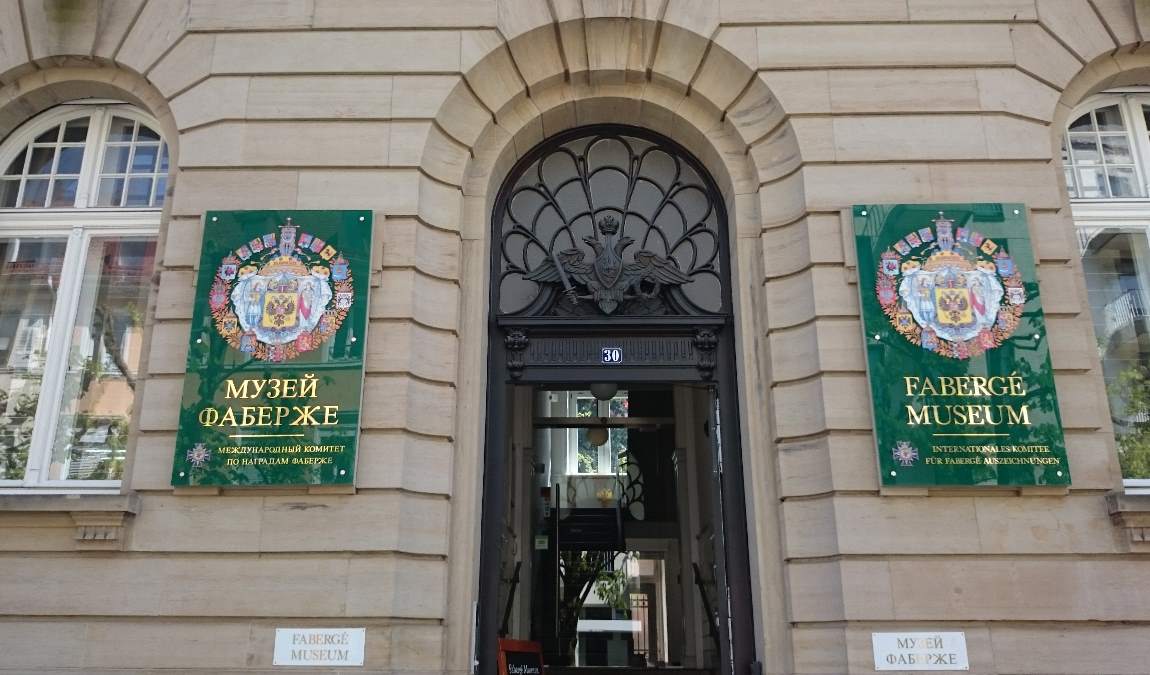
Fact 10: Men must wear suits to enter
There is one place in Baden-Baden frequented by those who want to try their luck. It is the oldest and most famous casino in Germany. It is located in the Kurhaus, the cultural heart of the town. The palace-like building was built in 1824 and has always been very popular. It was frequented by Dostoyevsky and Marlene Dietrich, who described it as 'the most elegant in the world'. The casino is as famous as Monte Carlo, but the Kurhaus offers more than just a roulette game.
The tour takes place in the morning before the gambling rooms open. All tourists, without exception, like the "Austrian Hall", where portraits of European monarchs and antique croupiers' tools are displayed.
An interesting fact about Baden-Baden: If you want to visit the casino, you must show proof of identity, as no one under 21 is allowed in the gaming rooms. The casinos offer a business suit hire service for those who don't. Men should also wear a suit and tie to play roulette.
This famous German resort is not known for the sheer size of its vast leisure centres and giant amusement parks. It is ideal for those who enjoy a modest and respectable holiday. Every year, Baden-Baden's fan base and the city grow. Travellers who have visited the town at least once agree it is an unforgettable experience.



